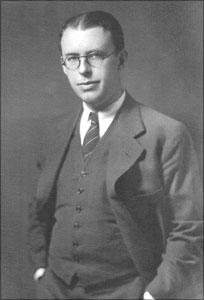An Island on the Land
 For my inaugural post, I thought it might be fun to take a little inspirational field trip to Echo Park to visit the former home of attorney/journalist/historian Carey McWilliams. It was not hard to find, I got the address from his Wiki page. And I am sure the current residents would be thrilled to know that their address is out there for anyone to see (then again, who is looking for McWilliams's old house?). In 1946, McWilliams published an exceptional work on the history of Southern California called, oddly enough, Southern California: An Island on the Land. The subtitle he borrowed from Helen Hunt Jackson, the nineteenth-century novelist who created Ramona - a story that became among the most enduring Southern California legends. I am now elbow deep in McWilliams's Southern California. The book is both probing and insightful, despite a few tenuous presentist connections. For example, he compares the Franciscan Mission system to National Socialism. Of course, he was writing (presumably during and) on the heels of World War II, so the idea of totalitarian regimes would have been on his mind, to say the least. But as brutal as the Franciscans may have been, they were not Nazis. They came to Alta California to save souls, not eliminate a race of people. But my issue with McWilliams's dubious comparison is just a quibble. I find the book extremely valuable for my purposes.
On the drive over to Casa McWilliams, I contemplated a number of things that might have inspired individuals from the Midwest and eastern states to head west. Economic opportunity, adventure, a salubrious climate. Each of these things was potentially a motivating factor. But the focus in McWilliams's introduction is on an abstraction: the need to pursue a well-rounded life and to escape the drudgery of the ordinary.
For my inaugural post, I thought it might be fun to take a little inspirational field trip to Echo Park to visit the former home of attorney/journalist/historian Carey McWilliams. It was not hard to find, I got the address from his Wiki page. And I am sure the current residents would be thrilled to know that their address is out there for anyone to see (then again, who is looking for McWilliams's old house?). In 1946, McWilliams published an exceptional work on the history of Southern California called, oddly enough, Southern California: An Island on the Land. The subtitle he borrowed from Helen Hunt Jackson, the nineteenth-century novelist who created Ramona - a story that became among the most enduring Southern California legends. I am now elbow deep in McWilliams's Southern California. The book is both probing and insightful, despite a few tenuous presentist connections. For example, he compares the Franciscan Mission system to National Socialism. Of course, he was writing (presumably during and) on the heels of World War II, so the idea of totalitarian regimes would have been on his mind, to say the least. But as brutal as the Franciscans may have been, they were not Nazis. They came to Alta California to save souls, not eliminate a race of people. But my issue with McWilliams's dubious comparison is just a quibble. I find the book extremely valuable for my purposes.
On the drive over to Casa McWilliams, I contemplated a number of things that might have inspired individuals from the Midwest and eastern states to head west. Economic opportunity, adventure, a salubrious climate. Each of these things was potentially a motivating factor. But the focus in McWilliams's introduction is on an abstraction: the need to pursue a well-rounded life and to escape the drudgery of the ordinary.
Here it seems, is the place where harassed Americans come to recover the joy and serenity which their manner of life denies them elsewhere.
This makes sense - not only for those suffering troubles in the present but for those who had lived through them in the past. And it seems to me that the Civil War would be a striking example of trouble - perhaps, after a conflagration of such magnitude, one would want a fresh start. Perhaps. At least it is a question to consider at this point in the game.
The idea of simply looking for a better life - one of leisure and opportunity is certainly nothing new, but it is rarely qualified. The notion seems well worth pursuing. And so I will be combing the primary and secondary material looking for exactly this and other motivational factors as part grand project. Your comments and contributions are, as always, welcome.
With compliments,
Keith